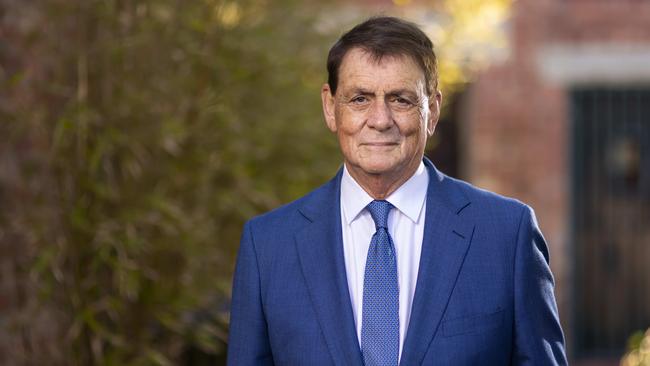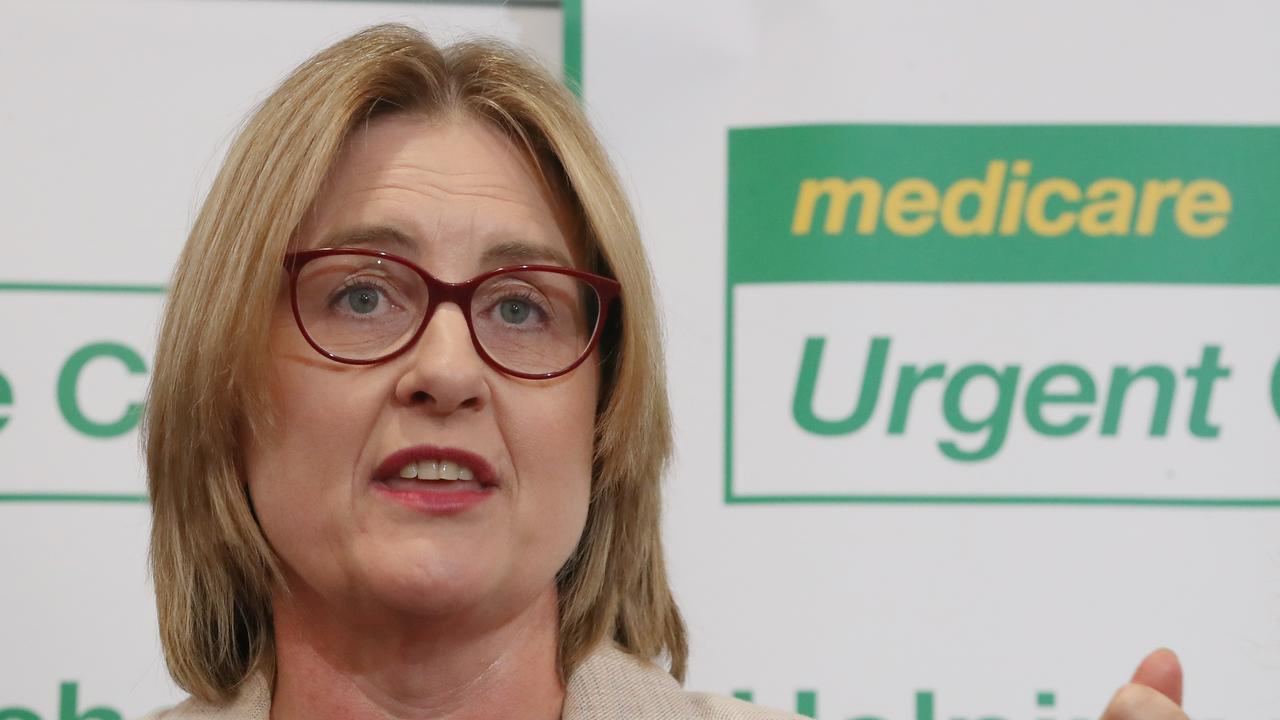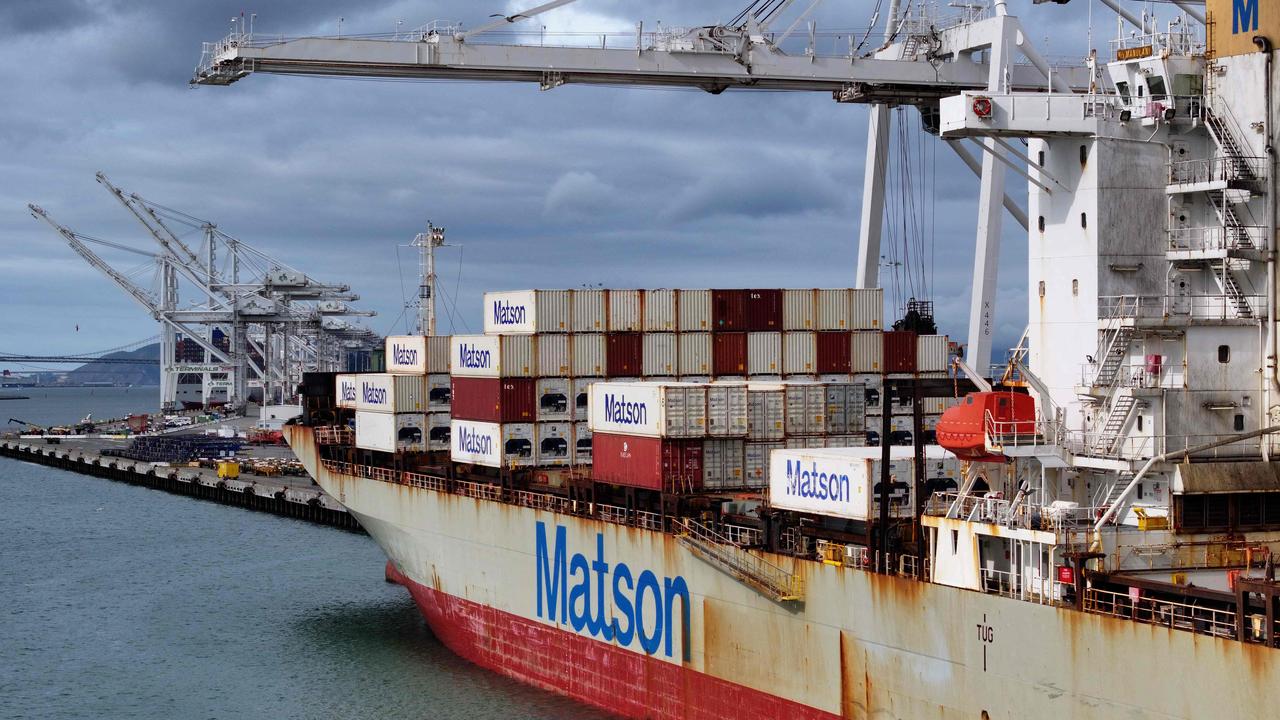Bill Evans, Westpac chief economist, still getting the big calls right after 30 years
Bill Evans tells what worries him most about the three decades to come after 30 years as Westpac’s chief economist.

Bill Evans took the top economics job at Westpac in August of 1991 with the nation in the grips of a debilitating recession. It’s with unfortunate symmetry he finds himself today celebrating a 30-year anniversary as the bank’s chief economist with the country battling its way out of another.
Separated by three decades, the two downturns share the common definition of two consecutives of “negative growth”, but otherwise couldn’t be more different, Evans tells The Weekend Australian.
“That one” – the early ’90s recession – “was caused by a policy mistake,” Evans says. “There was an over-tightening of monetary policy and a slow response from fiscal policy – made worse by the presence of asset bubbles.”
“This one was obviously not a policy mistake, it was a health decision.”
From an unemployment rate of around 6.5 per cent in mid-1990 when the economy started tipping into recession, the key jobless measure didn’t peak until it hit 11.2 per cent in December 1992. It then took almost a decade to return to where it had been.
Contrast that with today: the jobless rate in July was last measured at 4.6 per cent – already half a percentage point below where it was before the pandemic arrived a mere 18 months earlier.
“Now we can sort of see the light at the end of the tunnel, but in the early ’90s recession it was a jobless recovery,” Evans says.
“People said we were out of recession, but it didn’t feel like it. The big turning point came at the end of ’93. Confidence was low, and then Sydney was awarded the Olympic Games and consumer confidence jumped 10 per cent.”
Fast forward to today, and, yes, the recovery has been strong. But we’re not that we are out of the woods yet.
The Delta lockdowns have crushed economic activity in the September quarter, and the nation is in a race to vaccinate as many as people in order to ease the restrictions which threaten a second recession in as many years.
Evans says “we are expecting quite strong growth next year, but the uncertainty is much greater now because of the health risk”.
“I can easily see the scenario where we don’t get up to vaccination levels that are effective enough and more people get sick, hospitals get overloaded, governments can’t ease restrictions – that is a realistic downside scenario.”
The three decades between the “recession we had to have” and the “recession we couldn’t avoid” were ones of almost unblemished growth and prosperity.
Australia’s transition to a services-based economy has proceeded smoothly, secured by the incredible rise of China, whose voracious demand for our iron ore helped us dodge a bullet in the aftermath of the GFC.
It’s no doubt that Australians’ living standards are higher than when Evans started as chief economist.
GDP per capita has climbed from $11,813 in 1991, to $19,623 today – a 66 per cent rise. National output is two and a half times larger. The Australian economy is bigger; but is it better?
For the first time in our conversation, Evans doesn’t have an immediate answer.
When he does, it’s clear that – like any professional forecaster at the top of their game – he has an eye on the future, rather than the past.
“We are more vulnerable in terms of high household debt, and the extraordinary lift in house prices,” he begins.
“Growth has been pretty disappointing over the past 10 years. We have a great resources sector, but China is trying to lower the amount of iron ore they import. So there are a couple of structural issues there.”
“Certainly our standard of living is better. What worries me the most is that our future is selling services to the Asian middle class, especially in education and tourism. The pandemic has really created a major setback in that direction. The loss of our foreign students, all the issues around (the damage to) tourism infrastructure – that does bother me, and it may have a long lasting impact on where I think the economy should be heading.”
“We should certainly support those manufacturing sectors where we have a competitive advantage, but the big opportunity is where we sit in the region, and selling services rather than selling manufactured goods.”
Evans has earned the respect of peers in an incredibly competitive industry, where the roosters of one day are often feather dusters the next.
Saul Eslake, a former top economist at ANZ and himself a highly respected member of the economics community, describes Evans as the “doyen” of his field.
“I have enormous admiration and respect for Bill,” Eslake says. “He has moved markets, and there can’t be many economists who can say that – it just doesn’t happen very often.”
“Bill has called interest rates as well as (former Macquarie economist) Rory Robertson used to. He has been more right, more often about rates than anyone I can think of.”
Evans’ peer at NAB, the veteran Alan Oster, says “I really respect him, I really do”.
“He might go for the headlines sometimes, but he’s always worth listening to. And you do (as a chief economist) have to be prepared to trust your judgment and say things other people don’t believe in.”
Oster recalls it was a decade ago when Evans went from being a leading forecaster of the Reserve Bank rate decisions, to the market-moving doyen described by Eslake.
“He said the RBA was going to cut when everyone thought the market was going to go up – that’s when he made his name. That’s the call he would probably remember, but there are a few others.”
Evans, of course, remembers it well.
“Back in July 2011, the RBA had raised rates from 3 per cent to 4.75 per cent, and everyone was saying they had to go higher because the mining boom would push inflation higher,” he recalls.
“But we saw that the mining boom wasn’t lifting incomes for people in Western Sydney – and they weren’t facing inflation pressures. So my view was that rates had to come down 100 basis points (1 percentage point), and I was the only one.”
Between November and May, that’s precisely what happened. The cash rate dropped to 3.75 per cent, cementing Evans reputation as the number one RBA watcher for the next decade.
AMP Capital chief economist Shane Oliver says he had been ruminating on the same notion back in 2011, when he received a call from a journalist asking what he thought of Evans’s big call.
“I remember thinking ‘damn, Bill got in before me’,” Oliver says. “So I told the journalist I thought Bill was right. And he was.”
Since then, rates have only gone one way: down. Indeed, the last hike by the RBA was in November 2010, under the governorship of Glenn Stevens. So will Evans see another rate hike in his working career?
“Yes, in the first quarter of 2023,” Evans replies, without missing a beat – simultaneously confirming the house view and the fact that, even after 30 years, he has no plans of going anywhere.
But rates won’t go up far. Evans reckons that 1.25 per cent is the limit – because of the “explosion of household debt”.
“At that level the household debt servicing ratio will be close to the peaks in previous cycles when rates start to slow the economy. The last time we had a rate hike cycle was in 2009 when it peaked at 4.75 – that’s about equivalent to 1.25 per cent now due to the explosion of household debt.”
Evans says “central banks need to be very, very careful”.
“If we reach that level (rates at 1.25 per cent) and inflation is starting to move, then that will generate the risk of a major downturn if the central bank tightens further.”
“What will happen is the housing market will collapse, and the negative impact on demand will tame inflation, but come at a cost.”
The bottom line: “You don’t want to see inflation taking off with very high levels of debt,” he says.




